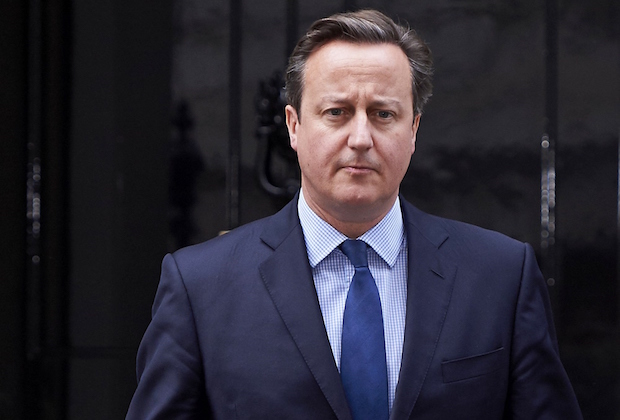These are the Arab countries the Foreign Office currently advises it is safe to visit: Morocco, Saudi Arabia, Bahrain, Kuwait, Qatar, UAE, Oman and Jordan. Call this list A.
These are the Arab countries the Foreign Office currently advises avoiding travel to, or to some regions at least: Algeria, Tunisia, Libya, Egypt, Sudan, the Lebanon, Syria and Iraq. Call this list B.
Anyone notice a pattern here? Answer at the end.
I have to admit to not having a clue whether we should be getting involved in Syria. For the first time yesterday morning I listened to Radio 4 and felt there to be a sort of right-wing bias to it, the entire news story presented as if Jeremy Corbyn was wrong; I know that party splits are of great interest to the media, but maybe Corbyn is right and we shouldn’t be getting involved in Syria – who knows?
I don’t know whether there really are 70,000 ‘moderate’ Syrian opposition soldiers ready to fight Isis, as the Prime Minister claims. The last I heard the American-trained opposition force was down to 4 or 5 (not 4,000, literally four guys). I don’t know whether both Isis and Assad can be beaten. All I can say for certain is that if Isis attacks France then that’s an attack on Britain and I’m happy for us to kill as many of them as possible; it won’t eradicate the risk of terrorism in Britain, which is here to stay whatever happens in Syria and the wider Middle East in the long term.
But as for that long-term plan in Syria, after we’ve killed some jihadis: what I don’t understand is how Conservatives can argue in favour of intervention and nation-building, as David Cameron, William Hague and Boris Johnson have all done.
I supported the Iraq invasion in 2003, by about 75/25, but I didn’t write about politics at the time and so never expressed any public opinion; I was from that generation that had watched helplessly as Africans starved in the 1980s and, following Bosnia and Kosovo, neo-colonialism in the name of liberalism and justice seemed like a good idea at the time. Iraq was a disaster, and for fairly conservative reasons.
One of the central planks of conservative philosophy is the law of unintended consequences; sometimes governments will become involved in complex issues and, by spending money and trying to help, will make things worse. The classic example of this is with welfare; Daniel Patrick Moynihan, ironically considered one of the founders of ‘neoconservatism’, wrote in The Negro Family: The Case For National Action that welfare intervention would make things worse by destroying families. That argument is widely accepted, or at least certainly by conservatives; throw money at dysfunctional families, and you will get more dysfunction, and in the meantime you will empower bad guys.
Just as for welfare, so with warfare, and there’s probably no area of activity that has more unintended consequences than fighting; things rarely go to plan, because there are so many variables and players involved, and when the peace treaty is signed the objectives as set out on day one rarely seem to be met. The Iraq invasion ended up with America very much reduced in power, and both Iran and Sunni militants (later to become Isis) strengthened.
It’s a tragedy that opposition to the war was so dominated by the anti-American hard-left, and that pragmatic conservatives were rather thin on the ground. Yet despite this the current Tory leadership seems intent on overthrowing the Syrian government and backing the opposition, and I’ve argued before that this shows a lack of critical thinking.
David Cameron wants ‘free and fair elections’ in Syria, yet what does he hope will happen afterwards? That the country will get the chaos, corruption and sectarianism of Iraq? Or the people will vote in religious maniacs as in Egypt? Does overthrowing a regime by force and installing an election in a multi-religious, clannish society with extremely weak if non-existent secular institutions offer the best chance of a decent life for the Syrian people? Or is it simply condemning the Syrian people to misery for the sake of looking morally superior? (You might just guess, from the way I phrased that question in that very impartial way, where my suspicions lie.)
To a conservative the key to good government and peace is stability, sovereignty and legitimacy; democracy cannot artificially create those things, it can only come about once they are already established. People always cite the example of Japan and Germany having democracy forced on them in 1945, but these societies had ancient, well-established institutions and a strong national identity going back centuries before, something Syria, Iraq and Libya – not to mention Afghanistan – certainly do not. Japan also had something in common with all the countries mentioned in List A, and none of those in List B – a monarch.
Sovereignty, stability and strong institutions take generations to build, which is why they are best created by monarchs with a long-term familial interest in the nation’s interests rather than simply helping his own clan. David Cameron wants to do this in Syria in 18 months – it’s a policy, and maybe it will work, but it’s certainly not a conservative one.







Comments